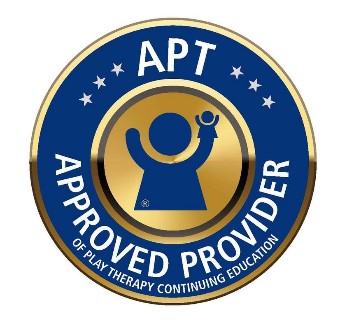Supervising Play Therapists
Want to learn all you need to know about supervising play therapists? Take this class
Description
In this course, we will explore play therapy supervision, fears and worries of supervisees and supervisors, supervisory skills, the roles and tasks of the play therapy supervisor, models of supervision, stages of the supervisory relationship, forms of supervision, evaluation of supervisees, issues related to training culturally sensitive play therapists, and legal and ethical issues in supervision and in play therapy. We will also help you look at the differences between play therapy consultation and play therapy supervision, factors that can moderate play therapy supervisee and supervisor countertransference, and ways to help supervisees consider which seminal or historically significant theoretical approach to play therapy might be the best match for them. By the end of class, you will have developed guidelines for designing your supervisory contract, a description of your personal style of supervision, and a professional disclosure statement outlining your play therapy supervision philosophy and procedures related to supervising play therapists.
 30 Non-Contact CE hours (30 hours on Play Therapy Supervision)
30 Non-Contact CE hours (30 hours on Play Therapy Supervision)
APT Approved Provider 99-055

League of Extraordinary Adlerian Play Therapists (LEAPT) has been approved by NBCC as an Approved Continuing Education Provider, ACEP No. 7402. Programs that do not qualify for NBCC credit are clearly identified. League of Extraordinary Adlerian Play Therapists (LEAPT) is solely responsible for all aspects of the programs.
Objectives
At the end of this training, participants will be able to:
- Define what play therapy supervision is.
- Describe the differences between play therapy supervision and play therapy consultation.
- Describe the similarities and differences between play therapy supervision and other forms of clinical counseling/social work supervision.
- Explain the rationale for play therapy supervision and describe the importance of play therapy supervision for play therapists-in-training.
- Explain why play therapy consultation is essential for experienced play therapists.
- List and describe 3 purposes of play therapy supervision.
- List and describe 3 purposes of play therapy consultation.
- List and describe 4 responsibilities of play therapy supervisors.
- List and describe 4 fears/worries/concerns that new play therapists might have about participating in supervision.
- List and describe 4 fears/worries/concerns that new play therapy supervisors might have about supervising play therapists-in-training.
- Describe 2 reasons for play therapy supervisors to evaluate their supervisory skills.
- List and describe 4 factors related to knowledge of play therapy that play therapy supervisors will need to consider in evaluating their own competency.
- List and describe 4 factors related to supervising management that play therapy supervisors will need to consider in evaluating their own competency.
- List and describe 4 play therapy intervention skills that play therapy supervisors will need to consider in evaluating their own competency.
- List and describe 4 traits or qualities that have been defined as optimal for clinical supervisors.
- Describe how they can self-evaluate their play therapy supervisory skills.
- List and describe 4 characteristics of effective clinical supervisors.
- List and describe 4 of the supervision tasks of the play therapy supervisor.
- List and describe 4 of the supervision functions of the play therapy supervisor.
- List and describe 3 of the supervision styles for clinical supervision.
- Explain the 3 main levels of the integrated developmental model of clinical supervision.
- List and describe 3 things that should always be covered in the initial meeting between a play therapy supervisor and the play therapy supervisee.
- Explain why having a contract for supervision is important in play therapy supervision.
- List and describe 4 things that should always be included in a play therapy supervision contract.
- List and describe 4 interpersonal skills that they will use in their play therapy supervision.
- Explain why helping play therapy supervisees explore their theoretical orientation is a necessary part of play therapy supervision.
- Explain why evaluation of supervisees is an important part of play therapy supervision.
- List and describe 4 areas to be explored in developing a person style of play therapy supervision.
- Describe 3 issues related to training culturally sensitive play therapists.
- Describe the 4-stage model of ethical decision-making in play therapy supervision.
- List and describe 3 of the factors that can moderate countertransference in play therapy supervisees.
Agenda
8:00 AM Start
10:15 AM Break 1 (15 mins)
12:00 PM Lunch
1:00 PM Resume Class
3:00 PM Break 2 (15 mins)
5:30 PM End